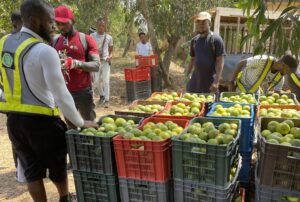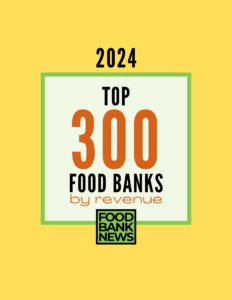DC Central Kitchen is gearing up to incorporate plant-based meat as a central protein in the 16,000 community meals it produces daily.
The alternative meat is expected to help the organization realize significant savings in both sourcing and labor costs, while also bolstering its commitment to sustaining the environment. The biggest selling point may be that it just plain tastes good, according to the people in charge of buying and cooking it at DC Central Kitchen.
“I love the texture,” said Dusty Cooper, Chief Operating Officer. “It’s just a really wonderful product.” Added Mollie Kaufmann, Director of Culinary Operations, “It’s tender. Almost a melt-in-your-mouth situation.”
The product comes from Planetarians, an eight-year-old entrepreneurial company that sees itself as a mitigator of climate change, not a food producer. Planetarians has a mission to remove greenhouse gas emissions caused by animal agriculture. For years, it experimented with sunflower seeds — repurposing them as chips, pasta and burgers — ultimately to no avail.
 The Covid pandemic gave Founder Aleh Manchuliantsau the opportunity to lock himself in a lab to figure out a better way to make a meaty-tasting product without animals. His study of fermentation led him to “stumble upon” spent brewer’s yeast – yeast that had already been used to make beer and no longer had value to the brewing companies.
The Covid pandemic gave Founder Aleh Manchuliantsau the opportunity to lock himself in a lab to figure out a better way to make a meaty-tasting product without animals. His study of fermentation led him to “stumble upon” spent brewer’s yeast – yeast that had already been used to make beer and no longer had value to the brewing companies.
Now Anheuser-Busch, the world’s largest beer manufacturer, is providing its spent yeast to Planetarians and has also made an investment in the company. Separately, the company last year raised $6 million in venture capital funding to test full-scale manufacturing of a meat-like product made from yeast.
Manchuliantsau originally envisioned his product as an affordable option for growing populations in India and Africa. After realizing that many people in the U.S. are also deprived of healthy protein options, he began focusing on a target market of U.S. institutional food providers, including schools, universities and food banks. In addition to DC Central Kitchen, Planetarians is working with Foodbank of Southeastern Virginia and the Eastern Shore, Coastal Bend Food Bank, and Central Texas Food Bank.
Cooper of DC Central Kitchen said she expects to be dropping Planetarians into its menu rotation for school meals, perhaps once a week, starting in November. At first, it will be used to replace chicken, then eventually meats like ground beef and ground turkey. In a taste test, kids at four schools have already given a thumbs-up to the flavor, while DC Central Kitchen’s dieticians have signed off on the nutritional quality.
Cooper expects significant savings in terms of labor because the product requires much less preparation. She has not yet quantified savings in terms of purchase price, but Manchuliantsau said the product is priced to be on par with, or up to 15% less than chicken.
Cooper appreciates the simplicity of the Planetarians ingredient list, which mainly includes soybean meal aside from the spent yeast. There are also six other pronounceable ingredients, including brown sugar, sea salt and garlic powder. “It’s eight ingredients in total, which is really fantastic,” Cooper said, “and there’s nothing on here that’s frightening.”
Kaufmann likes the versatility of the product, which can be stewed, braised, caramelized, roasted and even reheated. “It really has held up to all the different aspects of cooking we’ve put it through,” she said. Plus, it carries flavor. “It’s a great canvas for just about anything you could pair with it.”
Planetarians also fits in with the spirit of an organization that was founded as a food recovery agency in 1989 and still has a strong allegiance to improving the environment. “It’s just smart use of a product that otherwise is not going to be utilized further,” Cooper said. “And they created a tasty product on top of it.” – Chris Costanzo
Like what you’re reading?
Support Food Bank News









